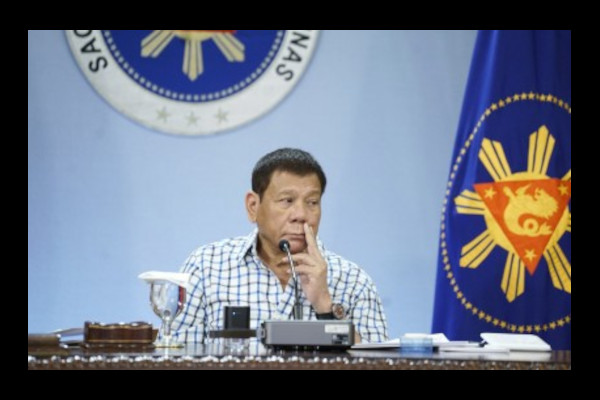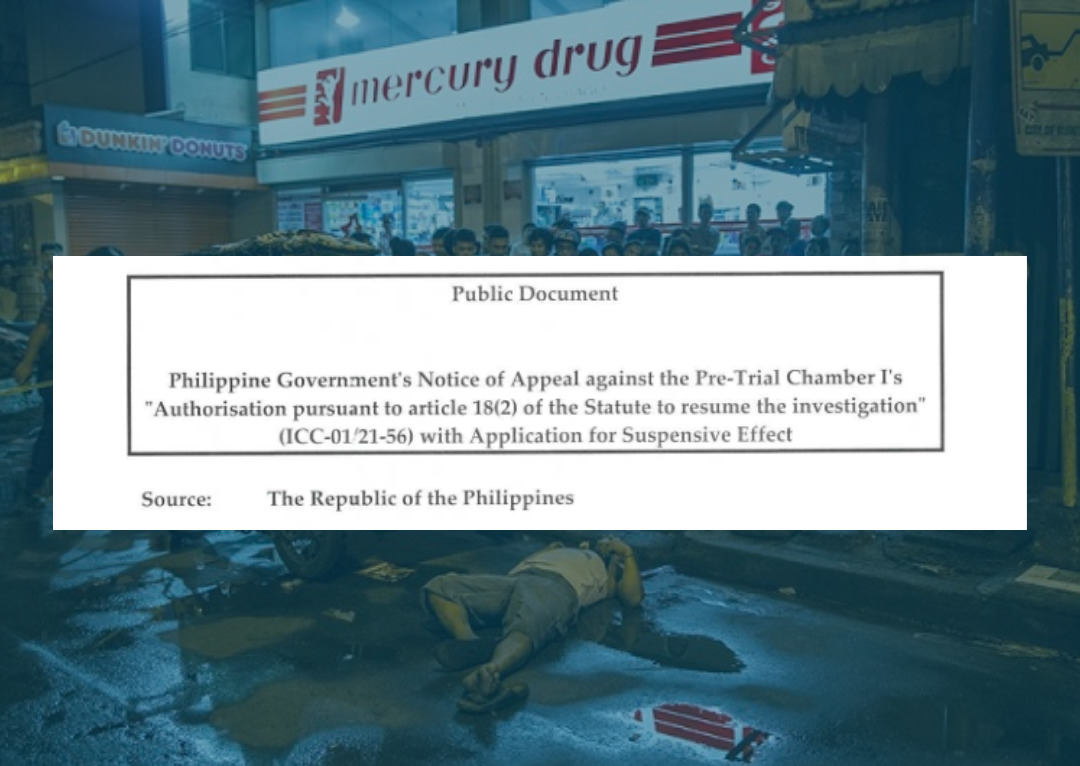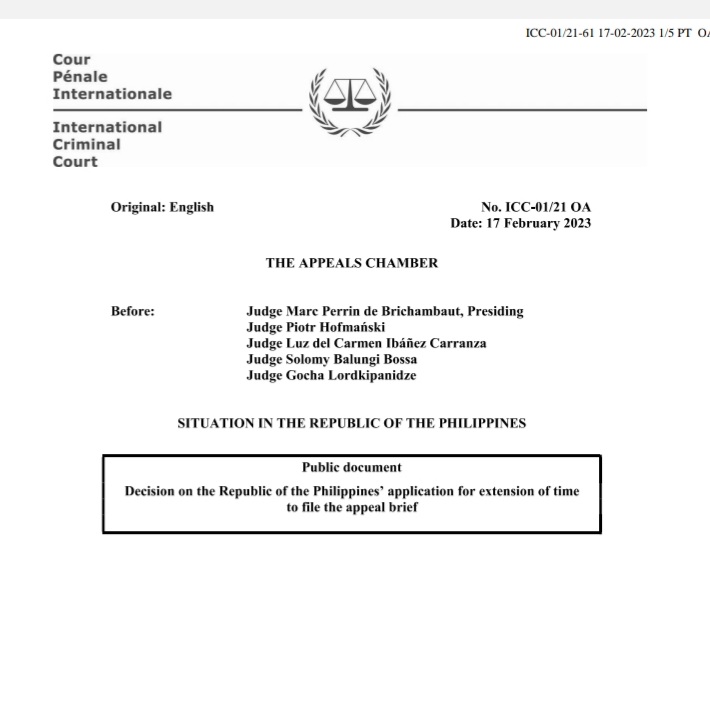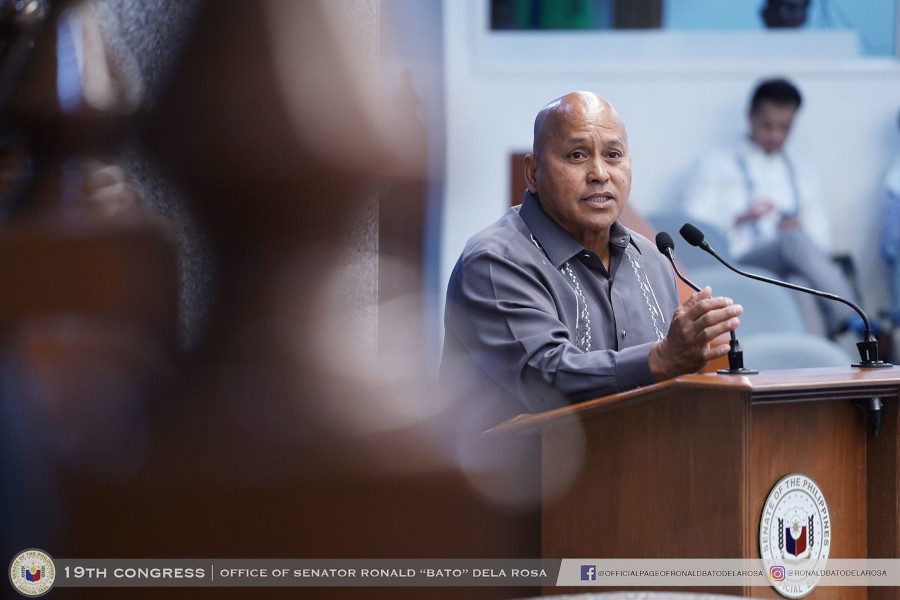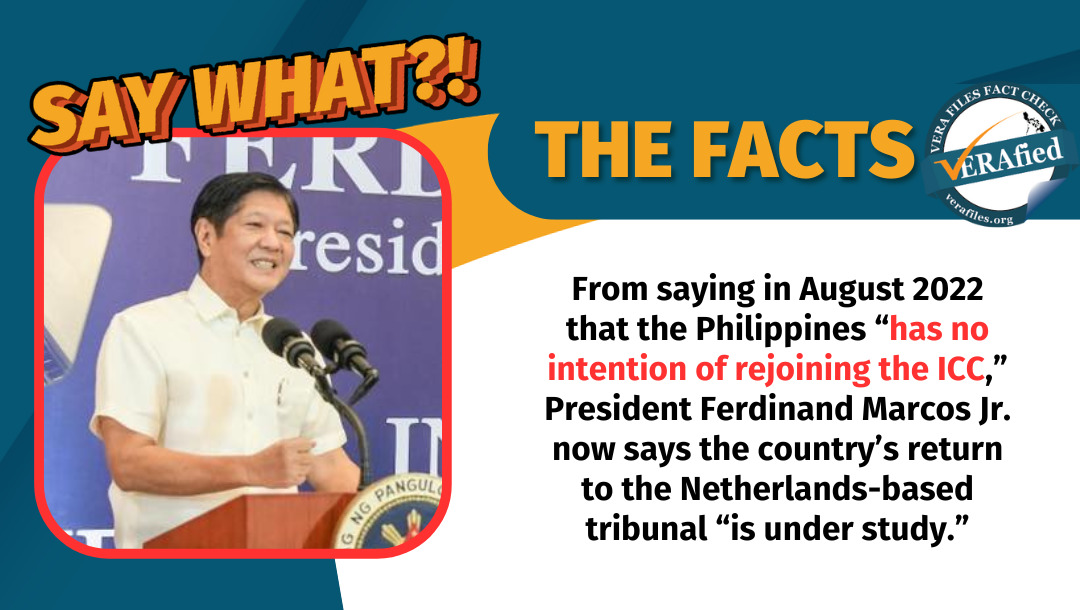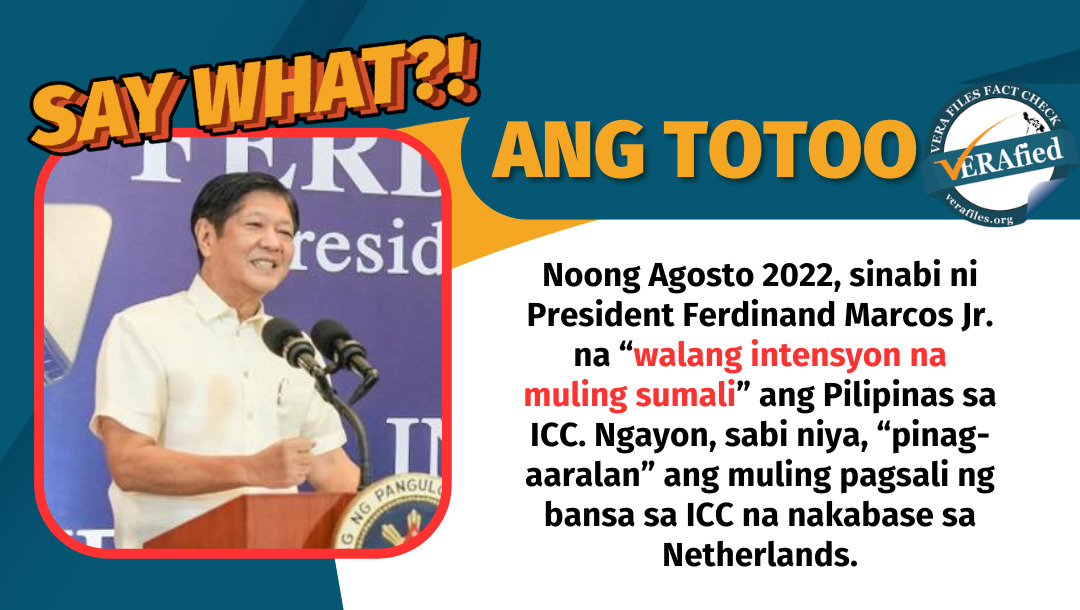Allies of former president Rodrigo Duterte who are claiming that the country has a “functioning and independent judicial system” appear to be losing touch with reality.
Led by former president Gloria Macapagal Arroyo, who is now a senior deputy speaker in the House of Representatives, 19 congressmen filed House Resolution 780 urging their colleagues in the so-called lower chamber to declare their “unequivocal defense” of Duterte, the country’s 16th president, “in any investigation and/or prosecution by the ICC (International Criminal Court).”
Neophyte Sen. Robinhood Padilla, a frequent hanger-on in Duterte’s foreign trips during his presidency, followed suit with a similar appeal to other senators through Senate Resolution 488.
Not to be outdone, Sen. Jinggoy Estrada, a son of former president Joseph Estrada, filed Resolution 492 expressing the Senate’s “strong opposition” to the resumption of the ICC probe into alleged crimes against humanity such as murder that were related to the Duterte administration’s bloody war on drugs.
Estrada said the ICC probe is “disrespecting” the country’s sovereignty and undermining its “fully capable judicial system.”
Apart from being allies of Duterte, Arroyo, Padilla and Estrada have another thing in common. They were all former detainees: Arroyo and Estrada for plunder and corruption and Padilla for illegal possession of firearms, for which he was convicted in 1994 and served a sentence for four years until then president Fidel Ramos granted him pardon in 1998.
The case against Arroyo was dismissed for insufficiency of evidence shortly after Duterte came to power in 2016. Estrada had been detained twice in his political career on plunder charges — first in 2001 and later in 2014. He was released in 2003 and won his first term as senator the year after, and was acquitted in 2007. His second plunder case is still under litigation. He was released in 2017 after posting P1.33 million bail.
Arroyo and Estrada had claimed to be victims of injustice and political persecution. Now that they are no longer in jail and on the side of the administration, they say that the judicial system is fully functional and independent.
In the Arroyo-led resolution, Justice Secretary Jesus Crispin Remulla was quoted as saying, “They (ICC) are insulting us,” and described the Netherlands-based tribunal’s investigation of the drug-killings in the Philippines as “totally unacceptable.”
The resolutions in the Senate filed by Padilla and Estrada are completely different. Padilla’s was in defense of Duterte while Estrada’s seeks to block the ICC probe.
Opposition Rep. Edcel Lagman of Albay is correct in saying that the expression of “unequivocal defense” for Duterte won’t cleanse his administration’s drug war deaths.
“Although the verbiage of House Resolution 780 urges the House of Representatives to defend Duterte against the resumption of the investigation of the ICC prosecutors, it does not deny that from 6,000 to 30,000 alleged drug suspects, mostly from the marginalized sectors, have been summarily killed in the wake of Duterte’s murderous campaign against illegal drugs.”
Arroyo’s fellow lawmakers from Pampanga — Deputy Speaker Aurelio Gonzales, Ana Bondoc-Sagum and John Lazatin 2nd — were among the signatories to HR 780, along with Reps. Jose Alvarez and Edward Hagedorn of Palawan, Mary Mitzi Cajayon-Uy of Caloocan City, Richard Gomez of Leyte, Wilton Kho of Masbate, Loreto Amante and Ma. Rene Ann Lourdes Matibag of Laguna, Edwin Olivarez of Parañaque, Eric Martinez of Valenzuela City, Eduardo Rama Jr. of Cebu, Dale Corvera of Agusan del Norte, Zaldy Villa of Siquijor, Mohamad Khalid Dimaporo of Lanao del Norte, Johnny Pimentel of Surigao del Sur, and Marlyn Primicias-Agabas of Pangasinan.
In the Senate, Duterte’s longtime aide, Sen. Christopher Lawrence “Bong” Go was quick to throw his support behind Padilla’s resolution. And so were Sens. Ronald “Bato” dela Rosa and Francis Tolentino. Dela Rosa was among those named as a possible subject of the ICC probe, having been chief of the Philippine National Police that carried out the bloody campaign against illegal drugs.
Noticeably, the resolutions to declare “unequivocal defense” of Duterte have not gained the support of other Congress leaders, particularly Speaker Martin Romualdez and Rep. Sandro Marcos, as well as Senate President Juan Miguel Zubiri.
The dictionary defines unequivocal as leaving no doubt, unambiguous.
If Duterte’s allies really believe that he was innocent, why do they seem to be too afraid of the ICC? Why don’t they allow the international tribunal to come in and be embarrassed to find out for themselves that the country indeed has a fully functioning and capable justice system, that is independent of political interventions?
But by blocking the ICC probe through their legislative influence, aren’t they putting the judicial system and Duterte’s innocence in serious doubt? Therefore, the ICC probe becomes necessary.
The ICC has made clear that it does not intend to replace domestic courts in investigating the drug-related killings. It said it only prosecutes cases when states are proven to be unwilling or incapable of doing so. This assertion defeats the claim that the ICC probe violates the principle of complementarity.
In its Jan. 26 decision to resume the probe, the ICC Pre-Trial Chamber I noted that the Philippine government’s investigation covered only “low-ranking” police officers and that it failed to look into the systemic nature of the crimes and identify the “most responsible” officials.
In a four-page brief asking the Netherlands-based tribunal to dismiss the Philippine government’s appeal to suspend its investigation, ICC Prosecutor Karim Khan said on Feb. 16: “The Philippines has not provided any argument substantiating its request for suspensive effect, nor shown that implementation of the decision would create an irreversible situation or one that would be very difficult to correct or potentially defeat the purpose of the appeal.”
As it now appears, the lawmakers blocking the ICC probe are flexing their political muscles to deny the oppressed victims of the drug war — whose rights they have sworn to defend — the opportunity to get justice for their loved ones who died on mere suspicion of involvement in the illegal drug trade.
The views in this column are those of the author and do not necessarily reflect the views of VERA Files.
This column also appeared in The Manila Times.
